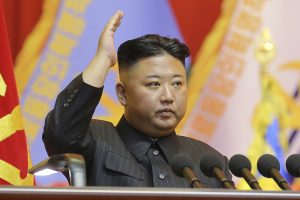Japan’s relations with North Korea seen frozen in time, showing none of the movement that has been seen in Pyongyang’s negotiations with the United States or South Korea. One need only visit the website of the Japanese Ministry of Foreign Affairs, which has not updated its page on “Japan-North Korea relations” for more than four years. Given the lack of progress on the abduction issue, Japan has maintained a consistently hardline stance on North Korea, but how does North Korea view Japan?
The first point to make is that North Korea has lost interest in Japan. For a long time, North Korean media liked to refer to Japan as the “millennium enemy.” This phrase was repeated by the Rodong Sinmun 29 times in 2018 and 34 times in 2019, but only twice in 2020 and twice in 2021. This is a striking drop, even taking into account the large number of COVID articles on the page-six international section of the newspaper.
Another important aspect is that Japan is seen as a “lapdog for the United States.” Late last September, President of the State Affairs Commission Kim Jong-un gave a policy speech to the Supreme People’s Assembly, in which he said that, “The severe crises and challenges that the world faces today are numerous, but a more fundamental danger is the heavy hand and despotism of the United States and its lapdogs that are destroying the root of international peace and stability.” The idea is that the United States is at the center, and Japan does Washington’s bidding. This worldview holds that if there is progress in U.S.-North Korea relations, then Japan will naturally follow.
The same applies to North-South relations. President Moon Jae-in’s attempts to appease North Korea and despite repeated summit meetings and agreements with President Kim Jong-un, Pyongyang has not been able to extract any economic support from Seoul. The hurdle is UN economic sanctions on North Korea, which have not been relaxed, in turn a reflection of the U.S.-North Korea impasse. The lesson that Pyongyang has learned from the Moon Jae-in administration over the last five years is that little tangible can be achieved in North-South relations until there is a breakthrough with Washington.
Returning to Japan-North Korea relations, with virtually no movement of people or goods between the two countries, the Japan team at the North Korean Ministry of Foreign Affairs is also fading into insignificance. At the Pyongyang University of Foreign Studies, which trains foreign-language specialists, only around 20 students are majoring in Japanese. The Japanese faculty used to be on a par with those for English, Chinese and Russian; today, it exists as a department within the “Ethnic Languages College,” alongside languages like Urdu and Romanian.
Twenty years ago, at the first ever Japan-North Korea summit, President Kim Jong-il acknowledged that the abductions of Japanese citizens had taken place and apologized to Prime Minister Koizumi Junichiro. This was prompted by the promise of a large sum (said to be 10 billion dollars) if relations could be normalized. These “normalization funds” still have a latent appeal to Pyongyang, yet there are no signs of Japan-North Korean relations improving.
In fact, bilateral relations have only worsened over the two decades since that ground-breaking summit. North Korea now sees no need to beg for money from the “millennium enemy,” since it can get support from an economically developed China and South Korea provided it can relax economic sanctions by negotiating with the United States. After all, the North Korean economy has recovered compared to how it was immediately after the “March of Suffering,” while Japanese economic power has diminished in relative terms.
The memoirs of former National Security Advisor John Bolton describes in detail how Japan tried to obstruct the U.S.-North Korea summit. Knowing this, North Korea sees Japan as simply a nuisance. This explains the “an idiot by birth and a scoundrel with no human worth,” “a vulgar, ignorant, and inhuman reprobate,” and other abuse it hurled at the hardliner former Prime Minister Abe Shinzo.
Still, North Korea can’t afford to completely ignore Japan, which still has one card it can play. Tokyo might lack the ability to independently drive negotiations with North Korea, but it can influence the American president. In particular, former President Donald Trump trusted Abe more than he did Moon.
It remains unclear how effective the advice really was, but Abe repeatedly warned Trump not to make major concessions to North Korea. Of course, the final say will always be Washington’s, but Tokyo’s input can play a role. After all, Trump suddenly brought up the Japanese abduction issue during lunch with Kim, even though it was not on the agenda. If North Korea does want to reopen negotiations with the United States, it is quite likely that it will first try to maneuver Japan into silence.

































